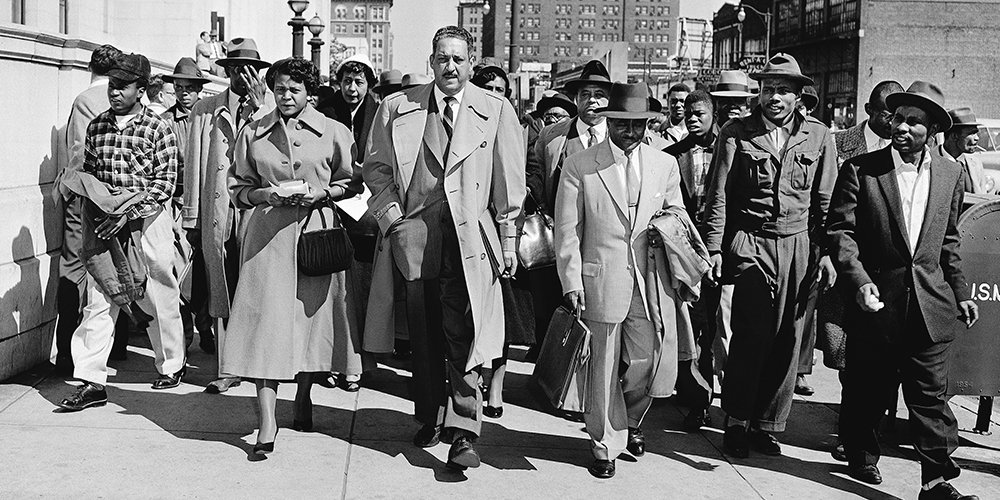
JUSTICE THURGOOD MARSHALL

Justice Thurgood Marshall sat on the highest court in America as . . . Associate Supreme Court Justice. This was a time, even though many laws were passed that did not support people of color, it was still viewed as a non-partisan court by most Americans. Today however, that is not the case. The current Supreme Court is seen by many people as conservative (Republican), and has weakened laws that supported equality and justice.
EQUALITY FOR ALL
The Supreme Court is the highest court in America. Justice and equality for all should be the at the core of its decisions. However, that is not the case. Politics influence those decisions. As a young college student, I believed that it would look at the Constitution and render a decision that served all Americans. Naivete and ignorance as to how politics work, described my understanding. Those qualities however, did not define Thurgood Marshall. He grew up respecting the rule of law.
RESPECTING THE RULE OF LAW
From early childhood, young Thurgood’s parents instilled in him a deep respect for the rule of law. He believed laws should be applied equally for everyone. As a black American, he had lived racial inequality.
THE EARLY LIFE
Born in Baltimore, Maryland on July 2, 1908 to Norma Arica Williams and William Canfield Marshall, he saw how unequally that law was applied to blacks. His parents were descendants of slaves, and were not far removed from the inequities of American life. His original name was Thoroughgood, but he shortened it to Thurgood.
After graduating from Howard University, young Thurgood established a private law practice, argued several cases before the Supreme Court. He was the Founder of the NAACP Legal Defense and Educational Fund. In 1961, President John F. Kennedy appointed him to the United States Court of Appeals for the Second Circuit Court. An in 1967, he was nominated by President Lyndon B. Johnson to the Supreme Court.
JUSTICE THURGOOD MARSHALL AND THE SUPREME COURT

Associate Justice Marshall’s motto on the Supreme Court was: “You do what you think is right, and let the law catch-up.” Many times, that motto was in conflict with the conservative view of the court. As what many considered too “liberal,” he supported individual rights, civil rights, abortion rights and opposed the death penalty.
His view of Constitutional protection for individual rights is well documented. Once he said at a bicentennial celebration: “the government they devised was defective from the start, requiring several amendments, a civil war and major social transformation to attain the system of constitutional government, and its respect for the individual freedoms and human rights, we hold as fundamental today.” Acquiring freedom was at the forefront of his decision-making on the Court until he retired.
Thurgood Marshall retired from the Supreme Court in 1991 because of failing health. He died in 1993 from heart failure at the age of 84. He is buried at Arlington National Cemetery. Many memorials are devoted to his service as a Supreme Court Justice.
MEMORIALS ACROSS AMERICA

Several memorials around the country pay tribute to Justice Thurgood Marshall. Among them are the 8 ft. statue in the Maryland State House, the law school at Texas Southern University, and the primary office building for the federal court, located on Capitol Hill in Washington, D.C.

